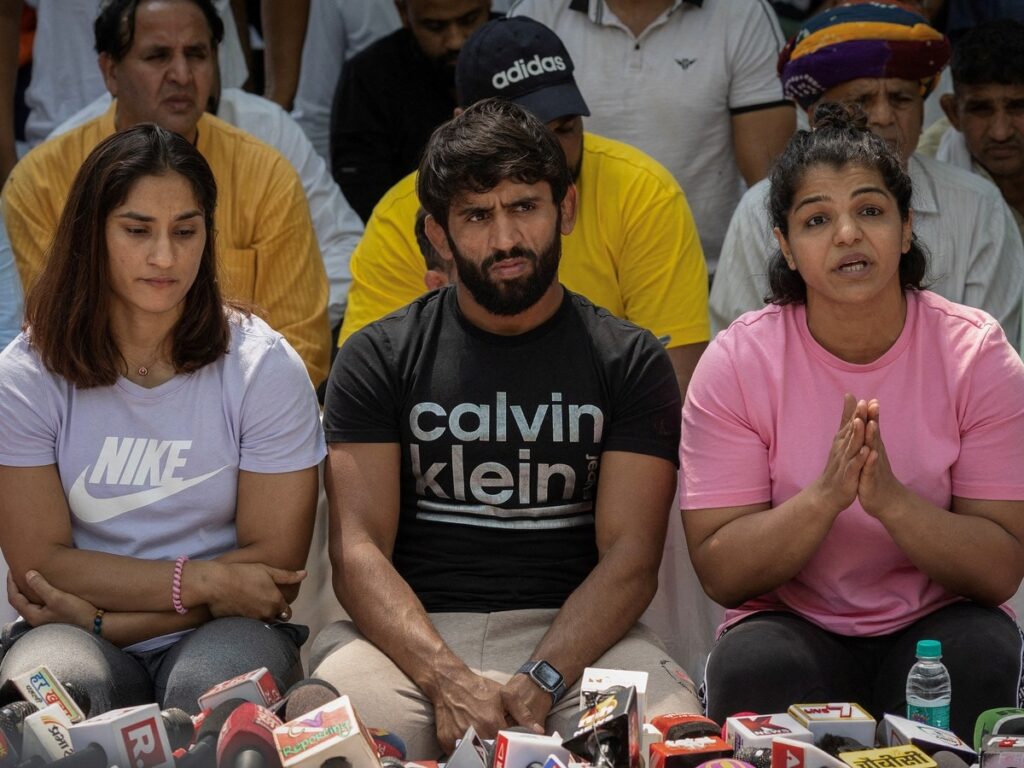In a recent development in the world of Indian wrestling, celebrated wrestler Sakshi Malik has made serious allegations against her fellow wrestlers Vinesh Fogat and Bajrang Punia. She claims that their actions have undermined the strength of the protest they collectively initiated against Brij Bhushan Sharan Singh, a controversial figure in the wrestling community. This situation has raised significant concerns regarding unity and solidarity within the sport.
Background of the Protest
The protest initiated by Malik, Fogat, and Punia was aimed at addressing serious issues related to the governance of wrestling in India, particularly allegations of sexual misconduct against Brij Bhushan Sharan Singh, the president of the Wrestling Federation of India. The wrestlers rallied together to demand justice and accountability, drawing national attention to their cause.
Current Issues in Wrestling
| Issue | Description | Status |
|---|---|---|
| Allegations of Misconduct | Accusations against Brij Bhushan Sharan Singh regarding inappropriate behavior. | Ongoing investigation. |
| Leadership Fragmentation | Internal conflicts among top wrestlers regarding protest strategies and unity. | Reported divisions. |
| Media Attention | Increased coverage of women’s wrestling and related issues. | Growing awareness. |
Implications of Internal Conflict
Malik’s accusations against Fogat and Punia highlight a deeper issue within the wrestling community: the challenge of maintaining solidarity when facing external pressures. Disagreements among prominent athletes can weaken their collective voice, ultimately impacting the effectiveness of their protest. The situation demands introspection and communication among the athletes to reaffirm their goals and commitment to justice.
The Role of Athletes in Advocacy
As prominent figures in sports, wrestlers like Malik, Fogat, and Punia carry significant influence. Their unified stance against misconduct not only shapes the future of wrestling in India but also inspires other athletes to stand up for their rights. The power of athletes as advocates extends beyond the ring, influencing societal attitudes towards gender and power dynamics in sports.
Conclusion
The recent allegations and conflict among top Indian wrestlers serve as a reminder of the fragility of unity in social movements. While Sakshi Malik’s concerns about the weakening of their protest against Brij Bhushan Sharan Singh are legitimate, it is crucial for all parties involved to prioritize their shared objectives. Strengthening communication and cooperation should be the focal point for these athletes as they continue to fight for justice within their sport. By finding common ground and reinforcing their commitment to advocacy, they can not only enhance their own cause but also set a precedent for collective action in sports.
